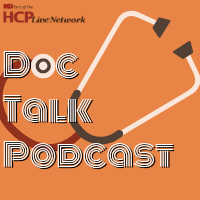Video
Psychosocial Interventions for Schizophrenia
Author(s):
Transcript:John M. Kane, MD: Dawn, what's your opinion on the effectiveness of psychosocial treatment and what are the goals that we're trying to achieve?
Dawn I. Velligan, PhD: Medication forms the foundation for recovery, and psychosocial treatment helps in a number of ways. We've developed cognitive adaptation training where you bypass some of the cognitive impairment associated with schizophrenia and help people to function better. We go into their homes and set up signs, alarms, pill containers, and help them set their calendars, so they don't miss social visits. We connect them to the community to interact more and create a more functional life. Support for people who have impairments in cognition and functional problems is helpful. It can improve social and occupational functioning, help them to not relapse and have longer tenure in the community. We also use cognitive behavioral therapy [CBT] for psychosis for people who are on medication, but their medication doesn't completely take away the problems with delusional thinking or hallucinations. CBT focuses on helping people deal with persisting symptoms.
With delusional thinking, we do behavioral experiments. If someone is afraid that people on a bus want to kill him or her, so they don't take the bus, we will go with them on the bus and we will stop them from their safety behaviors, like looking down at the ground so they don't see the people on the bus. We get them to look up and look at who is on the bus. There may be a couple of sketchy people on the bus, and I agree, they may be dangerous. “But look at that guy over there, he's smiling. And look at that kid, he's playing his video game. He doesn't even know you're alive. So, now only half of the people on the bus want to kill you.” When we chip away at the delusional thinking and looking at evidence, we're able to help people to cope with thoughts that they have.
We also work with hallucinations that won't go away. We focus on mindfulness, allowing that voice to be there. We work on distraction techniques like listening to headphones. We try different experiments to see what works. CBT has been effective in reducing the distress that is caused by the some of the positive symptoms that we can't treat to extinction with medication.
John M. Kane, MD: Do you find that most of your patients are amenable to psychosocial treatment?
So p
Dawn I. Velligan, PhD: Most patients really like psychosocial treatment. Some are worried about COVID-19 [coronavirus disease 2019], and it has caused a lot of us not to be able to make home visits, and they look forward to those visits. The treatment team becomes family for some of these people. They get a lot out of that interaction. Most people being treated for schizophrenia welcome psychosocial treatment.
Transcript Edited for Clarity
2 Commerce Drive
Cranbury, NJ 08512
All rights reserved.





